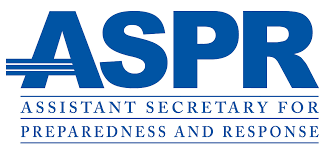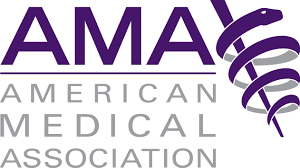News Clips
Scenarios for Health Care Reform (Part 1 of 2)
 All reformers in health care know what the field needs to do; I laid out four years ago the consensus about patient-supplied data, widespread analytics, mHealth, and transparency. Our frustration comes in when trying to crack the current hide-bound system open and create change. Recent interventions by US Republicans to repeal the Affordable Care Act, whatever their effects on costs and insurance coverage, offer no promise to affect workflows or treatment. So this article suggests three potential scenarios where reform could succeed, along with a vision of what will happen if none of them take hold...
All reformers in health care know what the field needs to do; I laid out four years ago the consensus about patient-supplied data, widespread analytics, mHealth, and transparency. Our frustration comes in when trying to crack the current hide-bound system open and create change. Recent interventions by US Republicans to repeal the Affordable Care Act, whatever their effects on costs and insurance coverage, offer no promise to affect workflows or treatment. So this article suggests three potential scenarios where reform could succeed, along with a vision of what will happen if none of them take hold...
- Login to post comments
HIT Think Why Interoperability Will Get Worse Before It Gets Better
We hear the same thing from the health IT community every year: We’re committed to enabling seamless health data sharing. It’s the industry’s perennial commitment that electronic health records (EHRs) will soon share patient data across different platforms to ensure coordinated, high-quality care. Walls will come down in the name of better patient outcomes. Unfortunately, none of this is going to happen any time soon. In fact, I predict our industry’s struggle with interoperability will get worse before it gets better...
- Login to post comments
Vision for a Principled Redesign of Health Information Technology
The mission for Family Medicine for America’s Health (FMAHealth) is to help people live healthier. To support this, a goal of the FMAHealth Technology Tactic Team is to envision a future state that involves the principled redesign and implementation of health information technology (IT) that optimally supports the health and health care of the US populace. Compared to other nations, the US health care system offers higher cost, lower quality health care to its people...
- Login to post comments
It Is Time for Physicians to Fight Back. Now.
The American health care system is broken, but it is not really “health care” that is the problem. The science of medicine, the tests, and the treatments available are better than ever. It is health care bureaucracy that is the problem. But doctors, nurses, and patients bear the brunt of the dysfunction. Medical professionals are unable to practice, and patients are denied the care they need, even though it is readily available. Careers are being ruined, and lives lost along the way. It is time to fight back...
- Login to post comments
HHS Emergency Update 2 - International Cyber Threat to Healthcare Organizations
 [The HHS Office of the Assistant Secretary for Preparedness and Response] held our sector call today with over 1800 participants. The information below is responsive to several requests for information noted on the call. In addition, we would like to flag for the community that a partner noted an exploitative social engineering activity whereby an individual called a hospital claiming to be from Microsoft and offering support if given access to their servers. It is likely that malicious actors will try and take advantage of the current situation in similar ways. Additionally, we received anecdotal notices of medical device ransomware infection. Please note the directions below.
[The HHS Office of the Assistant Secretary for Preparedness and Response] held our sector call today with over 1800 participants. The information below is responsive to several requests for information noted on the call. In addition, we would like to flag for the community that a partner noted an exploitative social engineering activity whereby an individual called a hospital claiming to be from Microsoft and offering support if given access to their servers. It is likely that malicious actors will try and take advantage of the current situation in similar ways. Additionally, we received anecdotal notices of medical device ransomware infection. Please note the directions below.
- Login to post comments
HHS’ Cyber Threat Center Comes Out of Beta Soon
The Health and Human Services Department’s nascent cybersecurity center will soon reach initial operating capability to help share threat information with a sector constantly under attack and often short of cyber personnel of its own. Based on the Homeland Security Department's National Cybersecurity and Communications Integration Center, the Healthcare Cybersecurity Communications and Integration Center will share health-care specific threats information with other agencies and the private sector...
- Login to post comments
City of Leeds Blazing a Trail with an Open Platform Person Held Record
 Leeds is leading the way in developing and piloting an open platform based Person Held Record (PHR) for local people. It follows extensive engagement with individuals, care professionals and stakeholders across the city to understand their needs and aspirations. It is believed a PHR will help people to better manage and control their own care and wellbeing and help prevent further health issues...
Leeds is leading the way in developing and piloting an open platform based Person Held Record (PHR) for local people. It follows extensive engagement with individuals, care professionals and stakeholders across the city to understand their needs and aspirations. It is believed a PHR will help people to better manage and control their own care and wellbeing and help prevent further health issues...
- Login to post comments
Ken Banks Receives ACM Award for FrontlineSMS Work
 Ken Banks, recipient of the Eugene L. Lawier Award for developing Frontline SMS, using mobile technology and text messaging to empower people to share information, organize aid, and reconnect communities during crises. A self-descrived "moble anthropologist," Banks has a gift for building technology that benefits humanity. As someone who was writing code and tinkering with computers since he was 13, Banks instinctively saw an opportunity to harness the world's most-used communications platform--mobile messaging--to help people in the developing world. In 2005, he designed, coded and launched FrontlineSMS, a mobile messaging platform that allows people to subscribe to groups, receive alerts, and establish communication hubs.
Ken Banks, recipient of the Eugene L. Lawier Award for developing Frontline SMS, using mobile technology and text messaging to empower people to share information, organize aid, and reconnect communities during crises. A self-descrived "moble anthropologist," Banks has a gift for building technology that benefits humanity. As someone who was writing code and tinkering with computers since he was 13, Banks instinctively saw an opportunity to harness the world's most-used communications platform--mobile messaging--to help people in the developing world. In 2005, he designed, coded and launched FrontlineSMS, a mobile messaging platform that allows people to subscribe to groups, receive alerts, and establish communication hubs.
- Login to post comments
The Data You've Been Missing — Provided by Patients
Ask orthopedic surgeon Andrew Jawa, M.D., when his total shoulder replacement patients can expect to put on a jacket without help. His answer is likely to include the exact postoperative week — with evidence-based variations due to each patient's age and condition. Jawa performs more than 220 total shoulder replacements each year at the Boston Sports and Shoulder Center. And his success relies in part on self-reported data provided by his patients at every visit, from the first preoperative appointment through every follow-up visit for the next five years...
- Login to post comments
Workplace Factors Contribute to Burnout in Family Physicians
Family physicians who work in a hectic or chaotic environment, those who report high rates of job-related stress, and those who spend time at home working on electronic medical record (EMR) tasks may be particularly vulnerable to burnout, researchers report. In a study designed to assess workplace factors associated with burnout among family physicians, Monee Rassolian, MD, from Michigan State University, Flint, and colleagues administered an abbreviated burnout survey to a random sample of family physicians applying to take the 2016 American Board of Family Medicine Certification Examination. They report their findings online May 8 in JAMA Internal Medicine...
- Login to post comments
Silicon gurney: EHR go-lives turn hospitals into software shops
Hospitals invest so much money in EHR implementations that it changes the very nature of their organization. And that means they need to think about operating more like a software company than just a hospital. If $100 million sounds like an exorbitant or even unrealistic ticket for an electronic health records platform, in fact, consider that Kaiser Permanente, Mayo Clinic and Partners HealthCare have publicly acknowledged spending an order of magnitude more than that — while other hospitals such as Scripps Health, Lehigh Valley Health Network, Lahey Hospital Medical Center and Lifespan revealed budgets bigger than $100 million. And that’s just to rattle off a fistful...
- Login to post comments
AVIA Names Andy Slavitt as Senior Advisor
 AVIA, the nation's leading network for health systems seeking to innovate and transform, announced that Andy Slavitt will join as a Senior Advisor. Slavitt brings to AVIA over two decades of private and public sector leadership in healthcare and technology. Slavitt previously served as the Acting Administrator for the Centers for Medicare & Medicaid Services (CMS) at the U.S. Department of Health and Human Services under President Obama. There, he oversaw the Medicare and Medicaid programs and the implementation of the Affordable Care Act’s health insurance marketplace...
AVIA, the nation's leading network for health systems seeking to innovate and transform, announced that Andy Slavitt will join as a Senior Advisor. Slavitt brings to AVIA over two decades of private and public sector leadership in healthcare and technology. Slavitt previously served as the Acting Administrator for the Centers for Medicare & Medicaid Services (CMS) at the U.S. Department of Health and Human Services under President Obama. There, he oversaw the Medicare and Medicaid programs and the implementation of the Affordable Care Act’s health insurance marketplace...
- Login to post comments
Missing from MACRA: 2 Meaningful Use millstones
 Physicians are now free from reporting on two major Meaningful Use requirements, but some doctors may not be aware of this long-sought change that became effective Jan 1. While it is hard to say how many physicians are in the dark about the change, there are anecdotal reports that some doctors don’t know that the Medicare Access and CHIP Reauthorization Act (MACRA) final rule agreed with AMA’s call to drop computerized physician order entry (CPOE) and clinical decision support (CDS) from Medicare’s payment program. What’s safe to say for certain is that the move comes as relief to physicians, based on surveys measuring their attitudes on electronic health records (EHR) usability in patient care...
Physicians are now free from reporting on two major Meaningful Use requirements, but some doctors may not be aware of this long-sought change that became effective Jan 1. While it is hard to say how many physicians are in the dark about the change, there are anecdotal reports that some doctors don’t know that the Medicare Access and CHIP Reauthorization Act (MACRA) final rule agreed with AMA’s call to drop computerized physician order entry (CPOE) and clinical decision support (CDS) from Medicare’s payment program. What’s safe to say for certain is that the move comes as relief to physicians, based on surveys measuring their attitudes on electronic health records (EHR) usability in patient care...
- Login to post comments
Four Lessons In The Adoption Of Machine Learning In Health Care
The March issue of Health Affairs demonstrates the potential of health care delivery system innovation to improve value for both patients and clinicians. Technology innovations such as machine learning and artificial intelligence systems are promising breakthroughs to improve diagnostic accuracy, tailor treatments, and even eventually replace work performed by clinicians, especially that of radiologists and pathologists. Machine-learning systems infer patterns, relationships, and rules directly from large volumes of data in ways that can far exceed human cognitive capacities...
- Login to post comments
Open Invention Network Expands Open-Source Patent Protection Beyond Linux
 Today, everyone and their uncle -- yes, even Microsoft-- use Linux and open-source. A decade ago, Linux was under attack by SCO for imaginary copyright violations, and then Microsoft CEO Steve Ballmer was claiming that Linux violated more than 200 of Microsoft's patents. So Open Invention Network (OIN) patent consortium was formed to defend Linux against intellectual property (IP) attacks. The stakes may not be so high today, but Linux and open-source software is still under attack from patent trolls and other attackers...
Today, everyone and their uncle -- yes, even Microsoft-- use Linux and open-source. A decade ago, Linux was under attack by SCO for imaginary copyright violations, and then Microsoft CEO Steve Ballmer was claiming that Linux violated more than 200 of Microsoft's patents. So Open Invention Network (OIN) patent consortium was formed to defend Linux against intellectual property (IP) attacks. The stakes may not be so high today, but Linux and open-source software is still under attack from patent trolls and other attackers...
- Login to post comments